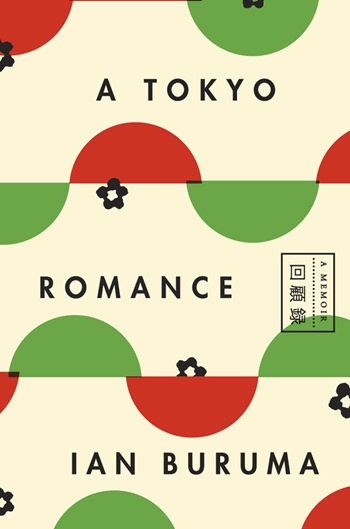
At a time when there still weren’t a lot of foreigners in Japan, Ian Buruma moved to Tokyo to immerse himself in the esoteric world of avant-garde Japanese theater and film.
 Back in Amsterdam, he had happened to catch a performance by an experimental Japanese theater troupe whose “deeply weird” plays were electrifying to him.
Back in Amsterdam, he had happened to catch a performance by an experimental Japanese theater troupe whose “deeply weird” plays were electrifying to him.
That experience, plus a longing to leave his “safe and slightly dull surroundings” and meet the kind of exotic Asian women he’d seen in the movies, led him to apply to an arts program in Tokyo.
When he got in, he bid farewell, at least for the time being, to the “world of garden sprinklers, club ties (and) bridge parties” of his upper-middle-class childhood.
Buruma’s new memoir, “A Tokyo Romance,” describes the years he spent in Tokyo in the late 1970s — and his coming-of-age as a writer — at a time when the city itself seemed almost as weird to him as that bohemian theater group.
“To be sure, I did not come across ventriloquists in 19th century French clothes being whipped by leather-clad dominatrices,” he writes. “But there was something theatrical, even hallucinatory, about the cityscape itself, where nothing was understated.”
Buruma, who went on to have a brilliant career as a journalist, succeeding Robert Silvers last year as editor of The New York Review of Books, where he was a longtime contributor, is an unusually lucid writer.
Last December at a talk at the New York Public Library he praised Silvers for insisting that writing should be concrete, and in this book he certainly follows his illustrious predecessor’s advice.
While the book occasionally gets bogged down in excruciating detail about movies only the most ardent cinephile would care about, Buruma paints a vivid portrait of his often mind-boggling encounters with the motley collection of artists, expats and eccentrics he befriended over his six years in Tokyo.
And his honesty is disarming. He confesses to alcohol-fueled indiscretions and erotic adventures and frankly grapples with the privileged treatment he received as a white man in Japan.
Ultimately, he says, it was that sense of being a perennial outsider in an insular island nation that made it impossible for him to stay.
“Even though I decided to leave Japan, I knew that Japan would never leave me,” he writes. “I arrived in Tokyo when I was still unformed, callow and eager for experience. … Japan shaped me when the plaster was still wet.” (AP)





